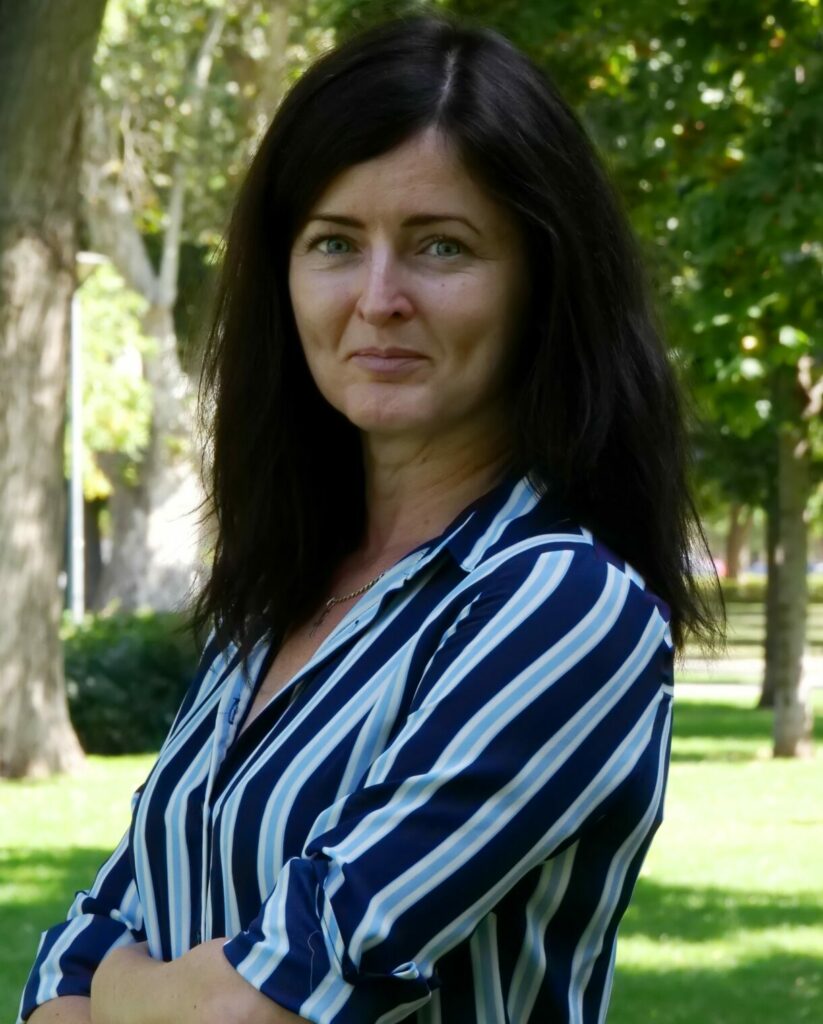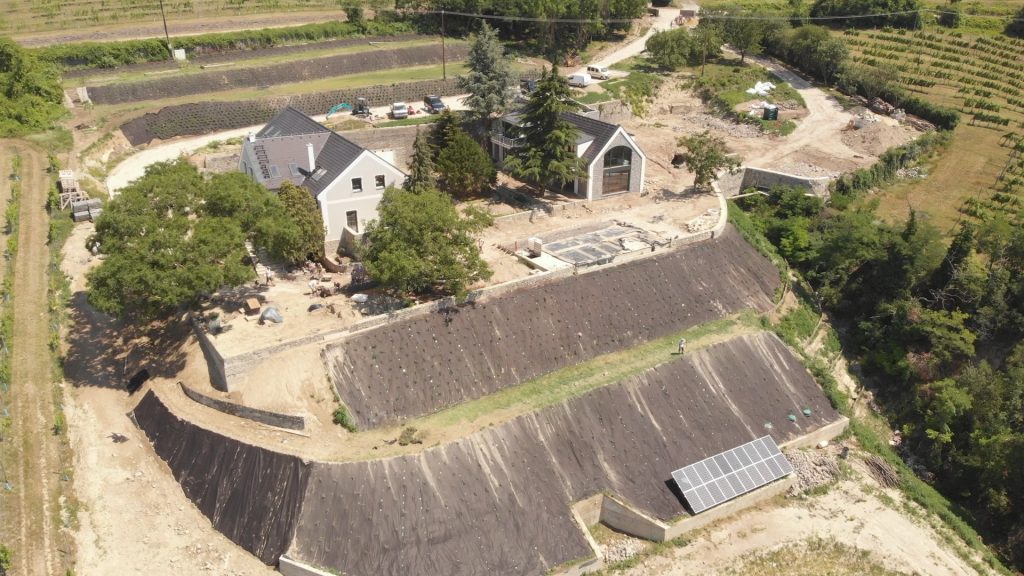The https://english.atlatszo.hu use cookies to track and profile customers such as action tags and pixel tracking on our website to assist our marketing. On our website we use technical, analytical, marketing and preference cookies. These are necessary for our site to work properly and to give us inforamation about how our site is used. See Cookies Policy
Fidesz MP utilizes EU funds to build a spectacular winery and guesthouse on mount Badacsony
The company of Kristóf Szatmáry (Fidesz MP and Ministerial Commissioner for coordinating the Budapest Road Construction Programme) was granted 127.6 million forints (cca. 380 thousand euros) of EU funds by the Hungarian government for the construction of a winery building and a guesthouse on Szatmáry’s estate in Badacsonytomaj. Further half a billion forints were granted by the government to the municipality for surfacing the road that leads to the winery.

Badacsonytomaj has approximately 2000 residents, it is situated in Veszprém county, on the northern shore of lake Balaton, at the feet of the Badacsony mountain. Even the Romans have grown grapes around the settlement, which is nowadays popular with the governing elite.
Kristóf Szatmáry Fidesz MP bought a 1.3 hectares estate in the outskirts of Badacsonytomaj in 2016, where his company, Nimfeum Kft. (established in 2014) has since been registered. Not long after the purchase, the property has grown to 1.5 hectares through land consolidation. Half of the ownership now belongs to Szatmáry’s wife, while Nimfeum Kft. started a construction project on the estate.
According to the governmental database of EU funds allocated in Hungary, Nimfeum Kft. was granted 77.9 million forints of EU support in 2017 for building the winery, and 49.6 million forints for the guesthouse.

EU funds granted for Nimfeum Kft. for the winery and the guesthouse in Badacsonytomaj (source: palyazat.gov.hu)
From the public procurement journal it is clear that Nimfeum is modernizing two buildings that were already there on the estate. The contractor for both buildings is Arttech Kft., which undertook the renovation of the winery building for net 148.2 million forints, while the guesthouse for 123.7 million.
Answering our questions Szatmáry told Átlátszó that the total cost of the project is 269.6 million forints (cca. 860 thousand euros). The costs are backed by their own funds, loans, investor’s loans and the EU support.
Construction is still not fully finished: upon our visit in the beginning of July, workers were doing their jobs around the buildings. According to our aerial photographs, the planned gardening works were not finished yet, and are now being done on the estate. Kristóf Szatmáry replied to our questions that landscaping and other works that were not part of the public procurement are now being done on the estate, and they will hopefully be able to open the 8-room guesthouse in the autumn.
It is most obvious from the sides and from the air how much the estate – which without a doubt has exquisite view on the lake – stands out from its surroundings.
Uniós pénzből épül a fideszes képviselő borászata és panziója a Badacsonyon from atlatszo.hu on Vimeo.
Ministerial Commissioner for road construction
Kristóf Szatmáry (1975) became a member of the Fidesz Budapest District XVI organization at a young age in 1993, and had a successful career since then. During his university years, he started working at the Századvég Political School as an external staff member, and in 2000, as a fresh graduate, he became secretary at the Parliamentary Department of the Ministry of Economy. In 2002, Szatmáry was elected as local authority representative for Budapest District XVI, and held this office until 2011.
In 2004, he became General Vice President for the Budapest Chamber of Commerce and Industry (BCCI). Between 2008 and 2016, he was president for BCCI, and Member of the Board for the Hungarian Chamber of Commerce and Industry (HCCI).
Since 2006 Szatmáry is an MP, and held several governmental positions since 2010.
Between 2011 and 2014, he held an office as the Secretary of State for the Economic Regulation Ministry for National Economy, between 2014 and 2018, he was the Ministerial Commissioner for governmental coordination of trade policy at the Prime Minister’s Office, and in 2018, he has been appointed by Gergely Gulyás, the Minister of Prime Minister’s Office, as the Ministerial Commissioner for coordinating the Budapest Road Construction Programme.
This last position means that Szatmáry was Ministerial Commissioner for surfacing the roads of Budapest. When news site 24.hu reported that half a billion forints were granted by the government to the municipality for surfacing the road that leads to his winery in Badacsonytomaj, the MP said that
“although as Ministerial Commissioner I am doing everything to make dirt roads disappear in Budapest, I did not become obsessed with asphalt. I chose Badacsonytomaj because of the tradition of winemaking and its natural environment”
According to the business registers, the Fidesz MP has ownership in two companies: the wine company Nimfeum Kft. (registered in Badacsonytomaj), and its majority owner, Primo Kft., which he owns together with his wife.
Although the balance sheets of these two companies for 2019 were not made public yet, the data from the previous years show that neither of these companies are particularly successful. In 2018, the revenues of both Nimfeum and Primo were 12 million forints. Primo’s profits after tax were 8.6 million forints, while Nimfeum closed the year with 748 thousand forints of losses.
It is unclear where the funds for the construction project in Badacsonytomaj that costs hundreds of millions of forints are coming from, besides the EU support. Kristóf Szatmáry told us that his asset declarations are available for the past 10 years, but he is not inclined to reply to questions that touch on other contracts, because those concern other people’s companies as well.
The surroundings of Lake Balaton are becoming increasingly popular with the governing elite in Hungary, last year we reported on Prime minister Viktor Orban’s son-in-law, businessman István Tiborcz buying a luxury holiday villa near Lake Balaton:
Prime minister Orban’s son-in-law bought a luxury holiday villa near Lake Balaton
István Tiborcz, who is prime minister Viktor Orbán’ son-in-law, bought two plots of land in the spring near Lake Balaton. The two adjacent plots cover 9500 square meters and both are officially classified as agricultural areas outside the town borders. According to official documents, the two plots have only agricultural structures built on them.
Text: Katalin Erdélyi – Video and cover photo: Gergely Pápai. The more detailed Hungarian version of this piece can be found here. English translation by Jakab Tengerdi.


